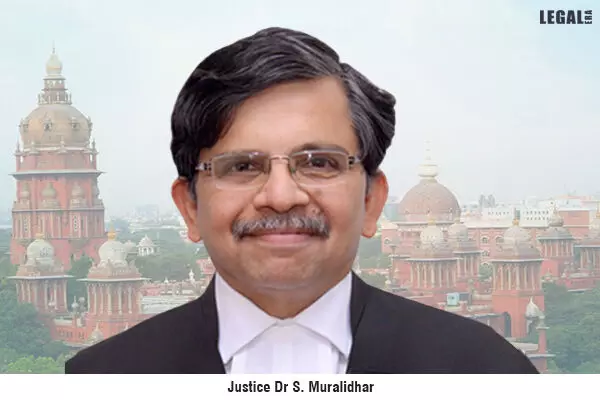- Home
- News
- Articles+
- Aerospace
- Agriculture
- Alternate Dispute Resolution
- Banking and Finance
- Bankruptcy
- Book Review
- Bribery & Corruption
- Commercial Litigation
- Competition Law
- Conference Reports
- Consumer Products
- Contract
- Corporate Governance
- Corporate Law
- Covid-19
- Cryptocurrency
- Cybersecurity
- Data Protection
- Defence
- Digital Economy
- E-commerce
- Employment Law
- Energy and Natural Resources
- Entertainment and Sports Law
- Environmental Law
- FDI
- Food and Beverage
- Health Care
- IBC Diaries
- Insurance Law
- Intellectual Property
- International Law
- Know the Law
- Labour Laws
- Litigation
- Litigation Funding
- Manufacturing
- Mergers & Acquisitions
- NFTs
- Privacy
- Private Equity
- Project Finance
- Real Estate
- Risk and Compliance
- Technology Media and Telecom
- Tributes
- Zoom In
- Take On Board
- In Focus
- Law & Policy and Regulation
- IP & Tech Era
- Viewpoint
- Arbitration & Mediation
- Tax
- Student Corner
- AI
- ESG
- Gaming
- Inclusion & Diversity
- Law Firms
- In-House
- Rankings
- E-Magazine
- Legal Era TV
- Events
- News
- Articles
- Aerospace
- Agriculture
- Alternate Dispute Resolution
- Banking and Finance
- Bankruptcy
- Book Review
- Bribery & Corruption
- Commercial Litigation
- Competition Law
- Conference Reports
- Consumer Products
- Contract
- Corporate Governance
- Corporate Law
- Covid-19
- Cryptocurrency
- Cybersecurity
- Data Protection
- Defence
- Digital Economy
- E-commerce
- Employment Law
- Energy and Natural Resources
- Entertainment and Sports Law
- Environmental Law
- FDI
- Food and Beverage
- Health Care
- IBC Diaries
- Insurance Law
- Intellectual Property
- International Law
- Know the Law
- Labour Laws
- Litigation
- Litigation Funding
- Manufacturing
- Mergers & Acquisitions
- NFTs
- Privacy
- Private Equity
- Project Finance
- Real Estate
- Risk and Compliance
- Technology Media and Telecom
- Tributes
- Zoom In
- Take On Board
- In Focus
- Law & Policy and Regulation
- IP & Tech Era
- Viewpoint
- Arbitration & Mediation
- Tax
- Student Corner
- AI
- ESG
- Gaming
- Inclusion & Diversity
- Law Firms
- In-House
- Rankings
- E-Magazine
- Legal Era TV
- Events
Centre withholds approval for transfer of Justice Dr S. Muralidhar to the Madras High Court, splits collegium resolution

Centre withholds approval for transfer of Justice Dr S. Muralidhar to the Madras High Court, splits collegium resolution
Three recommendations made by the Supreme Court Collegium on September 28 in connection with the appointment of Chief Justices of the High Courts of Karnataka, Rajasthan and Jammu and Kashmir, has been approved by the Central government.
However, it has held back on a recommendation related to transfer of Justice Dr S. Muralidhar, presently serving as the Chief Justice of Orissa High Court, to the Madras High Court.
A resolution was made by the Supreme Court Collegium regarding the transfer of Justice Pankaj Mithal and Justice Dr. S Muralidhar from J&K&L High Court and Orissa High Court as Chief Justices of Rajasthan and Madras High Courts respectively. However, the Department of Justice on October 11 only notified the transfer of Justice Mithal, ignoring the proposal regarding Justice Muralidhar made in the same collegium resolution. The Department also notified the recommendations made by the Collegium on September 28 to appoint Justice PB Varale as the Chief Justice of Karnataka High Court and Justice Ali Mohammad Magrey as the CJ of J&K&L High Court.
The splitting up of collegium resolutions by the Centre has come under criticism in the past -especially in the proposals concerning Senior Advocate Gopal Subramanium (2014), Justice KM Joseph (2018) and Justice Akil Kureshi (2019). The segregation of collegium resolution is criticised on the ground that it gives room for the executive to pick and choose.
Justice Muralidhar began his law practice in Chennai in September 1984. He shifted to the Supreme Court and Delhi High Court in 1987. He was appointed judge of Delhi High Court in 2006. He was a part of the High Court bench that first legalized homosexuality in the 2009 Naz Foundation case.
He also led the division bench that convicted members of the Uttar Pradesh Provincial Armed Constabulary (PAC) in the Hashimpura massacre case and Congress leader Sajjan Kumar in the 1984 anti-Sikh riots case.
He was transferred to the Punjab and Haryana High Court in February 2020, amid strong opposition from Delhi Bar. He was the third senior most Judge of the Delhi High Court at the time and was transferred with immediate effect.
The transfer was notified soon after he directed the Delhi police to take a decision regarding registration of FIR for inflammatory speeches against politicians such as Anurag Thakur, Pravesh Verma, Abhay Verma and Kapil Mishra in relation to the 2020 Delhi riots.
In January 2021, Justice Muralidhar was sworn in as the Chief Justice of Orissa High Court. Under his leadership, the Orissa High Court commenced live streaming of the Court of Chief Justice on a trial basis.
The High Court has also launched multiple e-Services such as High Court's mobile app, facility of online payment of fines in cases before District and Subordinate Courts, the system of Virtual Courts for dealing with traffic e-challan cases in Bhubaneswar-Cuttack Commissionerate area.
CJ Muralidhar also launched systems for (i) online payment of Court fees in the High Court & District Courts, (ii) e-Filing portal in 244 Court establishments across the State, (iii) Video Conferencing cabins in every District Court complex and (iv) e-Sewa Kendras in 78 Taluka Court complexes.



